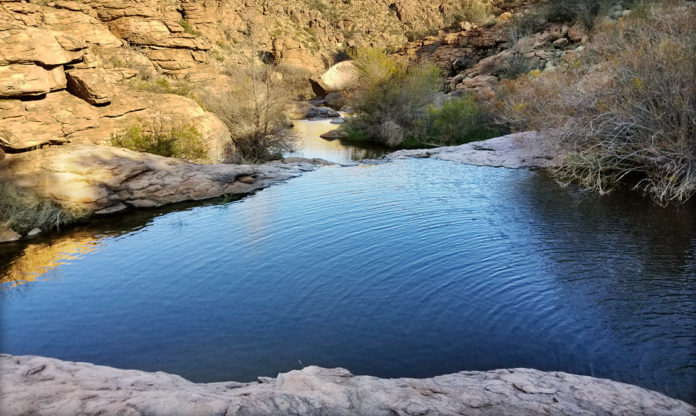SAN CARLOS, AZ – Last week, the Ninth Circuit Court of Appeals, in a 2-1 decision, ruled that the request for a preliminary injunction to halt the land exchange of Oak Flat be denied. Apache Stronghold – a coalition of Apaches, other Native peoples, and non-Native allies, which is represented by the Becket Fund for Religious Liberty – has vowed to appeal to the U.S. Supreme Court immediately.
The Preliminary Injunction would have stopped Resolution Copper, a foreign owned mining company, from gaining control over Oak Flat through a land exchange, until the court case, Apache Stronghold vs. the U.S. was decided. The court ruled that Apache Stronghold’s case against the United States had no likelihood of winning.
The decision was made with one judge dissenting. Judge Marsha Berson called the decision “absurd,” “illogical,” “disingenuous,” and “incoheren[t],” as the court ruled that the government’s decision to transfer Oak Flat to Resolution Copper “does not substantially burden” Apaches’ religious practices, even though the mine will swallow the sacred site in a massive crater, ending those practices forever.
“Oak Flat is like Mount Sinai to us – our most sacred site where we connect with our Creator, our faith, our families, and our land,” said Dr. Wendsler Nosie, Sr. of Apache Stronghold. “It is a place of healing that has been sacred to us since long before Europeans arrived on this continent. My children, grandchildren, and the generations after them deserve to practice our traditions at Oak Flat.”
Known in Apache as Chi’chil Biłdagoteel, Oak Flat has been protected from mining interests for more than six decades and is on the National Register of Historic Places. Western Apaches and other tribes have worshiped at Oak Flat since time immemorial and they still go there today to gather medicinal plants, visit sacred springs, and conduct essential ceremonies like the coming-of-age Sunrise Ceremony for Apache women – practices which cannot happen anywhere else.
The longstanding protections for Oak Flat were eliminated in 2014, when a midnight rider was snuck into a must-pass bill and the U.S. government decided to transfer the land to Resolution Copper. Resolution Copper’s mine will swallow the site in a 2-mile-wide and 1,100-foot-deep crater, rendering longstanding religious practices impossible and devastating the Apache way of life.
“Today’s decision is, as the dissent says, ‘absurd,’ ‘illogical,’ and ‘incoheren[t]’: if anything violates the free exercise of religion, it is the complete destruction of a sacred site that ends religious practices forever,” said Luke Goodrich, Vice President and Senior Counsel at Becket. “This ruling not only is devastating to Apaches and other Native Americans, but also threatens people of all faiths—and should not stand up on appeal.”
The two judges’ decisions that caused the injunction to be denied relied on a strict definition of “substantial burden.” Their arguments relied mainly on whether the government did or did not place a substantial burden on Apache religion, even though the end result of the mining at Oak Flat will completely obliterate the sacred site. Their argument was that even though the site would be gone, the government did not create a substantial burden under the strict definition of “substantial burden,” and because of this narrow view, the Court will not honor Apache Stronghold’s request for a preliminary injunction.
Apache Stronghold’s appeal to the U.S. Supreme Court is due on September 22, 2022. In addition to Becket, Apache Stronghold is represented by attorneys Michael V. Nixon and Clifford Levenson.















































